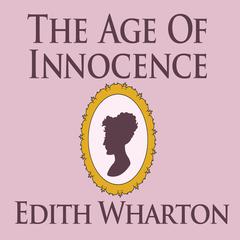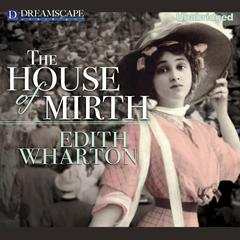 Play Audiobook Sample
Play Audiobook Sample
Summer Audiobook
 Play Audiobook Sample
Play Audiobook Sample
Quick Stats About this Audiobook
Total Audiobook Chapters:
Longest Chapter Length:
Shortest Chapter Length:
Average Chapter Length:
Audiobooks by this Author:
Publisher Description
Wharton's most erotic and lyrical novel, Summer explores a daring theme for 1917: a woman's awakening to her sexuality.
Eighteen-year-old Charity Royall lives in the small town of North Dormer, ignorant of desire until the arrival of architect Lucius Harney. Independent yet kept from love until now by society's expectations, Charity finds herself wrapped up in a love affair with Harney.
Like the succulent summer landscape in the Berkshires around them, Charity’s romance is lush and picturesque, but its consequences are harsh and real.
Praised for its realism and candor by such writers as Joseph Conrad and Henry James and compared to Flaubert's Madame Bovary, Summer was one of Wharton's personal favorites of all her novels and remains as fresh and relevant today as when it was first written.
Download and start listening now!
"Uneducated girl from the country is seduced by a city dandy...but this is not a cautionary tale so much as it is an exploration of a young girl's acknowledgment of her sexual feelings - astounding that it was written in the early 1900's. I'm glad I found this book. It's not one of her better known novels, but in my opinion, it's brilliant, and way ahead of it's time. I absolutely love "Ethan Frome"....Wharton called "Summer", the "hot" Ethan..."
— Valerie (5 out of 5 stars)
Quotes
-
“Wharton’s descriptive powers are superb, and Grace Conlin’s narration is exquisite. Highly recommended.”
— Library Journal (audio review) -
“Reader Grace Conlin distinguishes both men’s and women’s voices easily, using hushed, intimate tones to convey the sweetness of the romance. Yet an ephemeral quality in her delivery casts a shadow of reality on the story and reminds the listener that seasons change. Winner of the AudioFile Earphones Award.”
— AudioFile -
“Breaks, or stretches, many conventions of women’s romantic love stories and in the process creates a new picture of female sexuality…A clamorous and ecstatic affirmation of the joy of sexual love no matter what it costs.”
— Marilyn French, New York Times bestselling author -
“A clamorous and ecstatic affirmation of the joy of sexual love no matter what it costs.”
— Marilyn French, New York Times bestselling author
Awards
-
Winner of an AudioFile Earphones Award
Summer Listener Reviews
-
" After a trip to Edith Wharton's home this spring, I decided to read this book recommended by our young guide. The story of a young girl given away by her Mother after her Father had been sent to prison. The characters are well drawn. Interesting the role of women and girls and how that has changed in the past 100 years. The emphasis of self now and how important that is now would have greatly changed her life. I was happy with the ending and not what I thought it would be. "
— Trudy, 2/10/2014 -
" This ending was the most disappointing thing I've ever read. "
— Tris, 2/8/2014 -
" a great companion piece to Ethan Frome. Impulsive and sensual compared to the cold deliberate EF. Really enjoyed it. It's usually referred to as a very sexual book, but not explicit at all. "
— Alicia, 1/20/2014 -
" This book is known as the "hot Ethan Frome" but it isn't even vaguely hot haha. It was a slow book but the descriptions were beautiful and there was something about it that made me want to finish the story. "
— Bookworm007, 1/18/2014 -
" I was totally into classic lit for awhile when Annabella was a baby. Edith Wharton's writing is timeless. A short and easy read. "
— Gretchen, 12/30/2013 -
" Depression...but I think it would translate into a decent film. "
— Renee, 12/14/2013 -
" My favorite novel by Wharton to date. Short, simple, but effective. "
— Angie, 12/5/2013 -
" This was the first "literature" book that I ever read... I took it off of my sister Rachel's bookshelf. Very inspiring for a young girl who had up until then only read R.L. Stein and trashy romance novels from the drugstore... Perhaps it is what inspired me to become an English major? "
— Joy, 10/21/2013 -
" This is a beautifully written short novel about a young woman's awakening to love. "
— Kyle, 10/20/2013 -
" I read this very quickly and like the non traditional lead character. Between this and The Awakening, I'm having a good month of classic books that remind why it's good to be a woman today. "
— Elizabeth, 9/26/2013 -
" Really enjoyed the main character, Charity Royalle. I liked that one of her first statements in the book was 'I hate everything'. Charity is an unusual heroine in that she is not well read yet she is very wise. "
— Wendy, 8/29/2013 -
" I found the ending unsatisfying, but that was probably the point. "
— Jen, 5/5/2013 -
" For Victorian literature, it's not that bad and that's all I can really say about it. It's not a book I'd recommend, but it's also not one that I'd warn others away from. It simply was what it was: naturalism with a bit softer of an end with everything coming right back to where it started. "
— Crystal, 3/17/2013 -
" I enjoyed it and it's a quick read. The book is very realistic, yet poetic with a tangible ending. "
— Jocelyn, 10/27/2012 -
" I have never been a fan of EW. I find her work boring compared to other contemporaries during her time. I read this at a time when I was trying to figure out why I didn't like her work and finally just gave up trying to figure it out. "
— Naomi, 6/20/2012 -
" Her writing style is so full of detail and beauty that I can't help loving everything she writes. "
— Crystal, 4/19/2012 -
" Although I enjoyed this book, it was not my favorite. The end put a very interesting twist into a somewhat dull story. "
— Emily, 11/4/2011 -
" I love the scene where Charity is watching the fireworks with Harley and her guardian Mr. Royall sees her an calls her a whore. He is drunk and with a group of prostitutes. But she is on a simple date and he is superior and calls her a whore. Typical. "
— Caroline, 5/20/2011 -
" Not as provocative as I was led to believe, but good literature.<br/> "
— Terry, 5/6/2011 -
" Rates right up there with "The Awakening," but I prefer Wharton's writing and perspectives over Kate Chopin's. "
— Bennet, 3/10/2011 -
" I don't have much to say about "Summer" at the moment; I've just added this in to get the hang of how this site works, as Gillian was showing me the ropes. Engaging, but not something I'm likely to reread. "
— Da, 2/23/2011 -
" Although I enjoyed this book, it was not my favorite. The end put a very interesting twist into a somewhat dull story. "
— Emily, 2/3/2011 -
" One of my favorite Edith Wahrton novels! "
— Mary, 1/3/2011 -
" Victoriana at its best, I think. "
— Kate, 12/30/2010 -
" I really loved the writing and narrating of this but I was a bit icked out by the ending. Wait, did this fallen woman really just marry her stepfather? Is this where Woody Allen got the idea that it would be okay? "
— Anna, 12/14/2010
About Edith Wharton
Edith Wharton (1862–1937) is the author of the novels The Age of Innocence and Old New York, both of which won the Pulitzer Prize for Fiction. She was the first woman to receive that honor. In 1929 she was awarded the American Academy of Arts and Letters Gold Medal for Fiction. She was born in New York and is best known for her stories of life among the upper-class society into which she was born. She was educated privately at home and in Europe. In 1894 she began writing fiction, and her novel The House of Mirth established her as a leading writer.
About Grace Conlin
Grace Conlin (1962–1997) was the recording name of Grainne Cassidy, an award-winning actress and acclaimed narrator. She was a member of the Woolly Mammoth Theatre Company in Washington, DC, and won a Helen Hayes Award in 1988 for her role in Woolly Mammoth’s production of Savage in Limbo.























